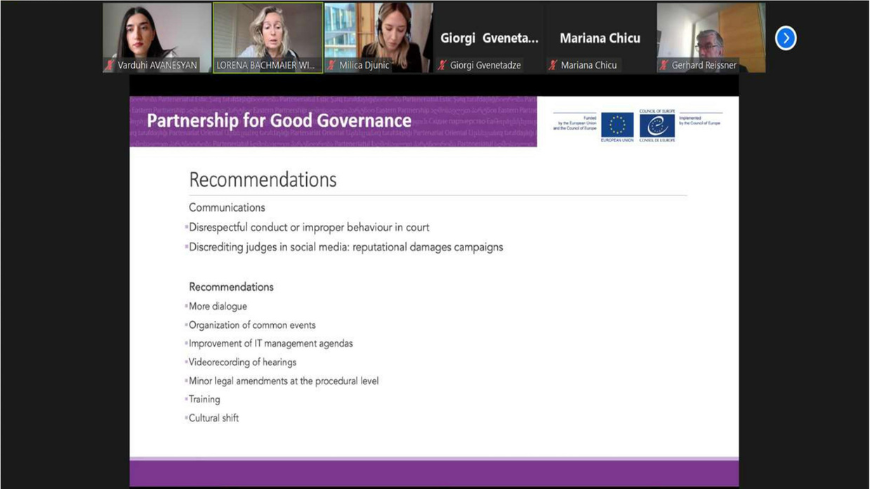On 25 November an online event - joint meeting of judges and lawyers was organised to discuss the implementation of Consultative Council of European Judges (CCJE) Opinion no. 16 of 2013 on the relations between judges and lawyers. The event gathered participants from Armenia, Georgia, the Republic of Moldova and Ukraine.
Opinion No. 16 addresses the relations between judges and lawyers with a view to the better quality and efficiency of justice. The opinion provides the assessment of respective roles of judges and lawyers in the functioning of justice and recommendations as to the role of lawyers and judges in effective implementation of the principles of a fair trial, and as to the improvement of procedural relations and international exchange of experience between judges and lawyers.
The joint meeting of judges and lawyers was initiated to also present the findings and recommendations of the cross-country review on the professional standards of interaction of lawyers and judges previously conducted in relation to the mentioned countries.
The event provided a forum for exchanging experiences and views on the problems of the bar-bench relations both on the domestic and regional levels.
The format of the joint meeting gave an opportunity for the participating countries to express their concerns regarding the professional interaction of the two communities.
The event was organised under the project “Strengthening the Profession of Lawyer in Line European Standards” funded by the European Union and the Council of Europe and implemented by the Council of Europe in their Partnership for Good Governance II 2019-2022.





